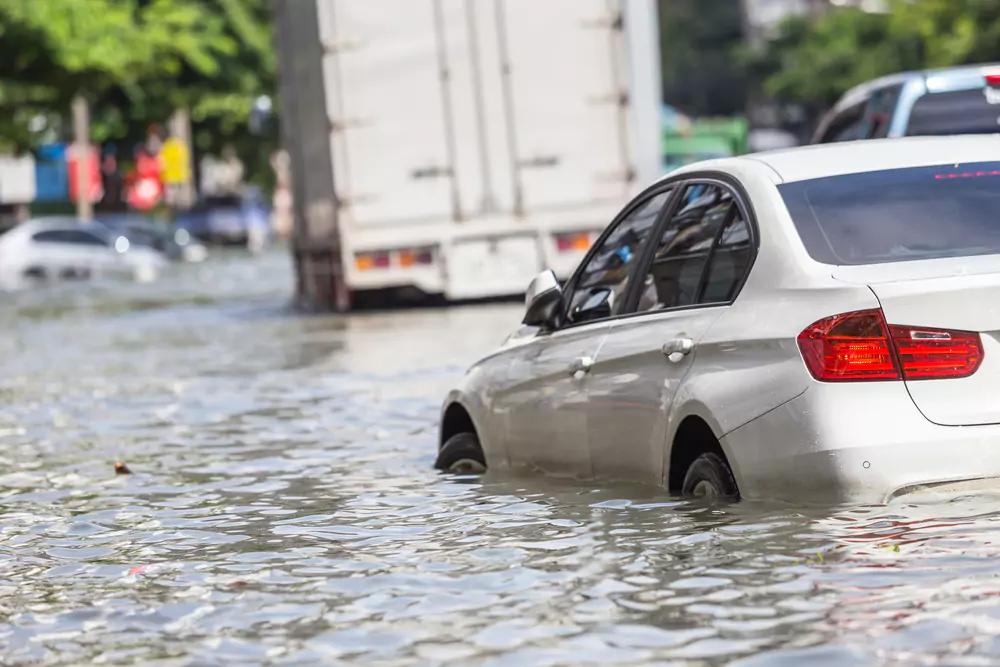Thailand’s domestic tourism washed out due to heavy rains, and other reports

For PropertyGuru’s news roundup, we focus on climate change. Firstly, heavy downpours affect tourism during the three-day holiday, according to the Tourism Authority of Thailand. In other news, Vietnam contributes to managing and eliminating greenhouse gases and ozone-depleting substances. Lastly, China’s nascent wine industry is using genetics and artificial intelligence to combat climate challenges.
Heavy rainfall drowns domestic travel plans in Thailand
Heavy downpours in Hua Hin and Cha-am are expected to affect tourism during the three-day holiday in the weekend of 11th Oct, worsening domestic sentiment, as the Tourism Authority of Thailand (TAT) highlighted natural disasters as the most critical factor to watch during the high season.
Earlier in the week, Cha-am, Hua Hin and parts of Phetkasem Highway were affected by flooding measuring 20-40 centimetres, attributed to persistent rainfall.
Udom Srimahachota, vice-president of the Thai Hotels Association’s western chapter, said in Bangkok Post that it took tourists an extra two hours to reach hotels in those areas.
Even though the situation has eased, the Southern-east Coast Meteorological Center forecasts severe rainfall in the southern provinces, including Prachuap Khiri Khan and Phetchaburi, from 10th to 13th Oct.
Mr Udom said the association estimates the number of domestic tourists might dip by 30 percent as they avoid travel delays.
Vietnam contributes to global climate change response efforts
As a signatory to the Vienna Convention for the Protection of the Ozone Layer and the Montreal Protocol on Substances that Deplete the Ozone Layer, Vietnam has over the past years realised its responsibility to manage and eliminate greenhouse gases and ozone-depleting substances, Deputy Minister of Natural Resources and Environment Le Cong Thanh said on 16th September.
According to VietnamPlus, he made the statement while attending a conference in Hanoi to mark Vietnam’s 30-year membership of the pacts which drew the participation of domestic and international experts from the Ministry of Natural Resources and Environment, the Ministry of Agriculture and Rural Development, the United Nations Environment Programme (UNEP), and the World Bank.
Thanh highlighted that Vietnam has completely phased out chlorofluorocarbons (CFCs), halon, carbon tetrachloride (CTC), and hydrochlorofluorocarbons (HCFC)-141b, and effectively controlled the substances following the Montreal Protocol, adding methyl bromide is now only used for sterilisation purposes.
The country eyes to stop importing HCDC by 2040, and phase down the consumption of hydrofluorocarbons (HFC) by 80 percent by 2045, he added.
China’s winemakers turn to genetics, AI to futureproof against climate change
At a laboratory in Beijing, purple and green hybrid-species grapes are laid out on a board for testing, part of the strategy China’s nascent wine industry is using to try to combat climate challenges.
HKFP reports that scientists are using genetics and artificial intelligence to address imperfect weather conditions, as well as anticipate future problems that might be wrought by rising global temperatures.
“In China, since we have a quite young industry, we don’t have many clear observations about the effect of climate change,” Dai Zhanwu, a professor at the Chinese Academy of Sciences (CAS). “But globally… there are many clearly observed impacts.”
The world’s wine production dropped 10 percent last year mostly because of “extreme environmental conditions” such as droughts and fires, according to a leading industry body. Scientists say climate change driven by greenhouse gas emissions is making extreme weather more frequent and intense.
The Property Report editors wrote this article. For more information, email: [email protected].
Recommended
Why Japan’s new interest rates might spark a transformation in Niseko’s property market
A new era for Niseko’s wintry property market dawns with the sunset of Japan’s negative rates regime
ARES White Paper Volume 3: The era of adaptive reinvention
Pioneering sustainable and innovative practices in urban development
ARES White Paper Volume 2: Unravelling the power of data revolution in real estate
Insights on proptech, smart cities, and sustainable development
ARES Digital White Paper Volume 1: The fundamentals of responsible building
Green and climate heroes join forces to discuss how Asia Pacific can weather the current environmental crises and the looming effects of climate change






